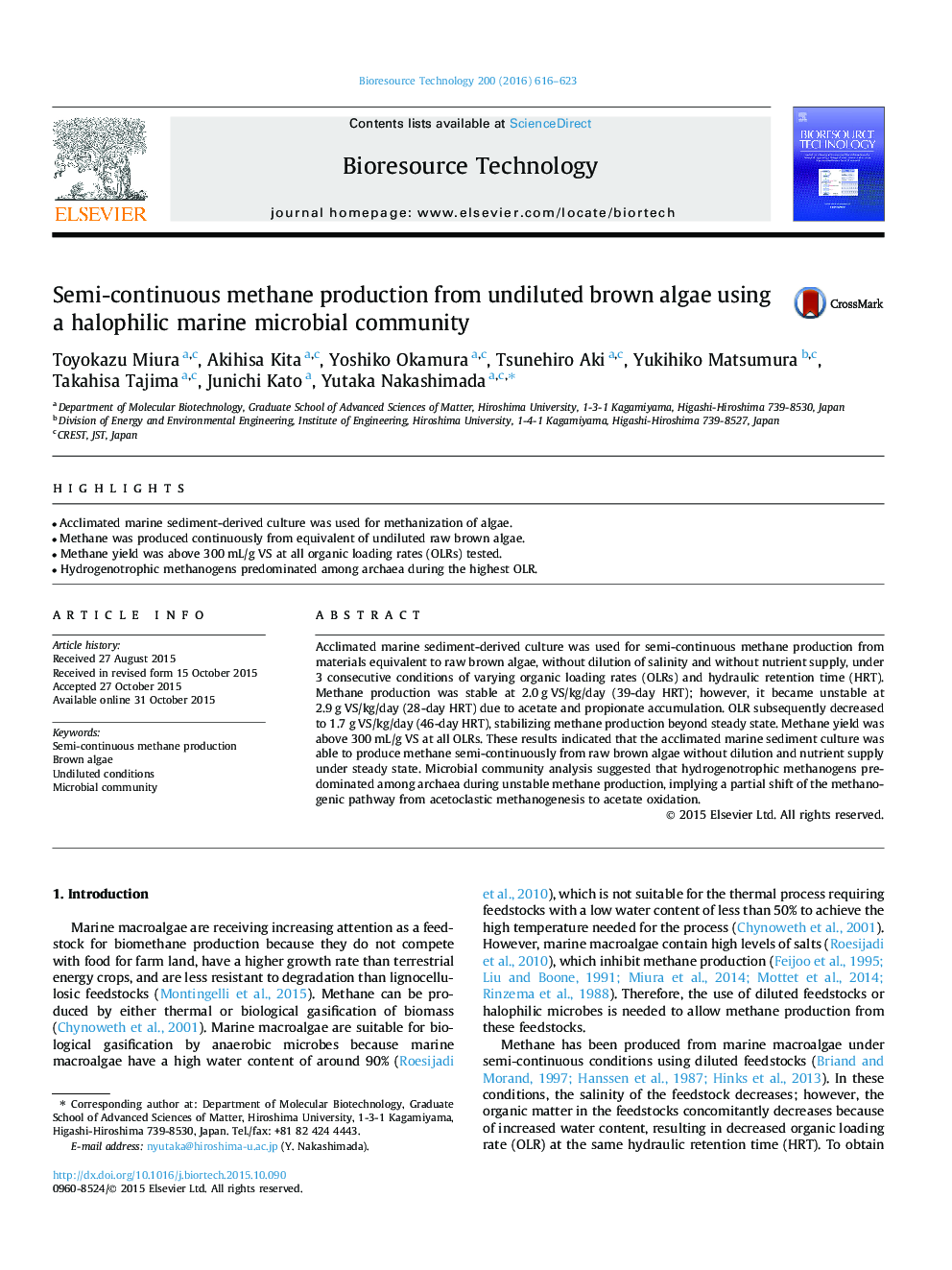| Article ID | Journal | Published Year | Pages | File Type |
|---|---|---|---|---|
| 7072877 | Bioresource Technology | 2016 | 8 Pages |
Abstract
Acclimated marine sediment-derived culture was used for semi-continuous methane production from materials equivalent to raw brown algae, without dilution of salinity and without nutrient supply, under 3 consecutive conditions of varying organic loading rates (OLRs) and hydraulic retention time (HRT). Methane production was stable at 2.0 g VS/kg/day (39-day HRT); however, it became unstable at 2.9 g VS/kg/day (28-day HRT) due to acetate and propionate accumulation. OLR subsequently decreased to 1.7 g VS/kg/day (46-day HRT), stabilizing methane production beyond steady state. Methane yield was above 300 mL/g VS at all OLRs. These results indicated that the acclimated marine sediment culture was able to produce methane semi-continuously from raw brown algae without dilution and nutrient supply under steady state. Microbial community analysis suggested that hydrogenotrophic methanogens predominated among archaea during unstable methane production, implying a partial shift of the methanogenic pathway from acetoclastic methanogenesis to acetate oxidation.
Keywords
Related Topics
Physical Sciences and Engineering
Chemical Engineering
Process Chemistry and Technology
Authors
Toyokazu Miura, Akihisa Kita, Yoshiko Okamura, Tsunehiro Aki, Yukihiko Matsumura, Takahisa Tajima, Junichi Kato, Yutaka Nakashimada,
